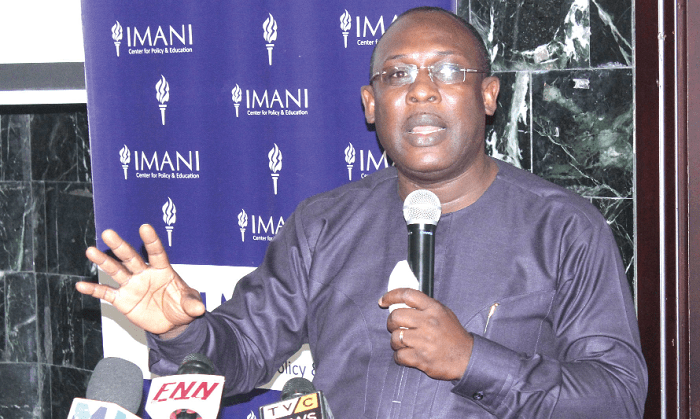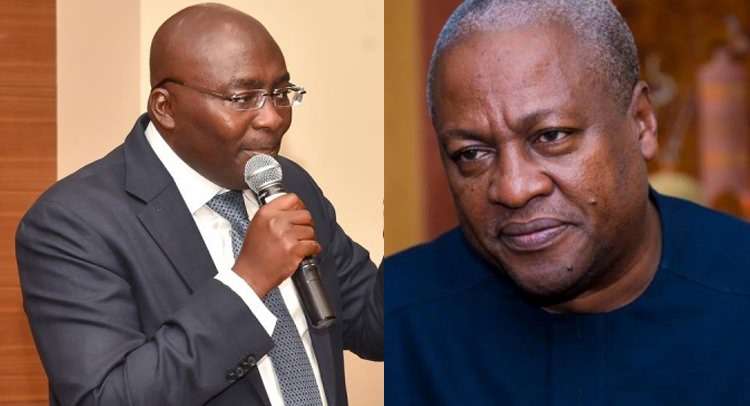In the ongoing conversation about Ghana’s economic trajectory, gold reserves are once again taking center stage—and for good reason.
According to Kofi Bentil, Vice President of IMANI Africa, the precious metal might be doing more than just shining in vaults; it could be the quiet hero behind the Cedi’s recent strength.
Bentil, known for his sharp political and economic commentary, offered praise to both the current and previous governments for their strategic handling of Ghana’s gold.
Citing Bank of Ghana (BoG) and Precious Minerals Marketing Company (PMMC) data, he noted that the new administration under President John Mahama inherited 30.53 tonnes of gold in reserves.
“As of the end of April 2025, the reserves stood at 31.37 tonnes, meaning the new government has added less than 1 ton. Meanwhile, Gold sales reported by PMMC in 2025 are as follows: Jan – $506m, Feb – $579m, March- $742m, April – $897m. That’s over 2.7 billion dollars of revenue.
“In short, the previous government, under the policy championed by DMB, built gold reserves, which we still have, and is supporting the Cedi. The current JM government did not add much to the reserves but sold gold and has pumped the dollars received into the economy.”
Kofi Bentil

This kind of economic relay race is precisely what Bentil is advocating for—a political baton-pass that puts national interest ahead of partisan points-scoring. “May this good work started by DMB and continued by JM go on.”
The idea is clear: sustainable progress doesn’t need to wear a party color.
Bentil’s comments seem both insightful and refreshingly non-combative in Ghana’s often polarized political environment.
He struck a note of unity: “No one government can develop Ghana; it is a baton relay, and that is what is helping the Cedi today.”
In a political climate often dominated by blame games and finger-pointing, his call for cross-party cooperation rings with rare clarity.
Bipartisan Strategies Shores Ghana’s Gold Reserves
Moreover, Kofi Bentil was keen to highlight that global dynamics have also contributed to the Cedi’s recent gains.
He pointed to the U.S. government’s apparent preference for a weaker dollar as one external factor aiding the Cedi’s appreciation.

Still, he stressed that it is ultimately the synergy of domestic policies and initiatives that underpins the currency’s resilience.
“This government has also added to the gold reserves, BUT a check of the numbers will reveal that most of what was purchased by this government has been sold for forex, which has been pushed into the system and it’s shoring up the Cedi.”
Kofi Bentil
His point? The strategic sale of gold reserves isn’t reckless; it’s calculated and effective, especially when the proceeds are managed responsibly.
And here lies the key takeaway: both the Mahama-led administration and the previous one under Dr. Mahamudu Bawumia (DMB) have contributed to this success.
Bentil underscored that the original gold purchase policy began with the previous government, but it’s being continued—and enhanced—by the current one.

According to him, the new addition to this policy, the GoldBod initiative, is serving as an engine for further economic stability.“Both efforts are leading to positive results. Both governments deserve praise.”
Beyond the economic implications, Bentil reflected on the broader significance of recognizing innovation and honoring legacy.
He emphasized that the unique drive and vision of those who initiate impactful policies are difficult to replicate, and acknowledging their contributions is essential for meaningful national advancement.
Rather than sidelining such individuals, he advocated for embracing and involving them to maximize the benefits of their ideas.
Accordingly, Bentil voiced a sentiment likely shared by many Ghanaians: the progress being made should not fall victim to political rivalry.
He urged for a collective, bipartisan commitment to sustaining the positive momentum, emphasizing that collaboration across party lines is key to building a stronger, more resilient Ghana.
In a political landscape often defined by the search for heroes and scapegoats, genuine progress is more likely to be achieved through unity and collaboration than through division and partisanship.
READ ALSO: Nigeria Sets Bold Target to Boost Oil Output




















